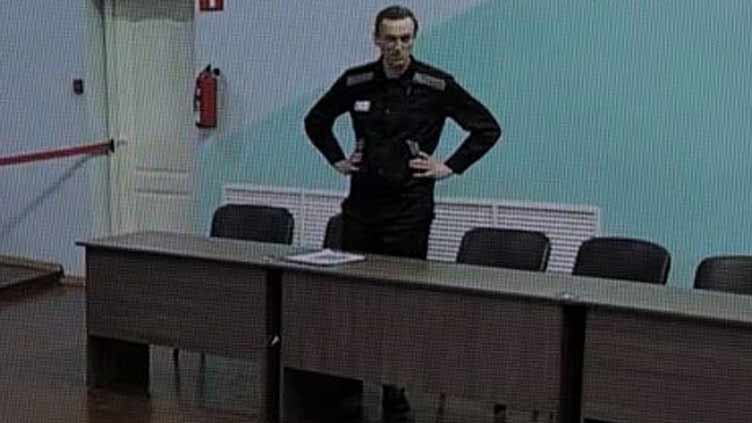US imposes sanctions on four Russians linked to FSB over Navalny poisoning

World
The assassination attempt against Aleksey Navalny was made in 2020
WASHINGTON (Reuters) - The United States on Thursday imposed sanctions on four Russians it accused of being involved in the 2020 poisoning of now jailed Russian opposition leader Alexei Navalny.
The U.S. Treasury Department in a statement said the four hit with sanctions are linked to Russia's Federal Security Service (FSB) and included two it said are among the main reported perpetrators of Navalny's poisoning.
“Today we remind Vladimir Putin and his regime that there are consequences not only for waging a brutal and unprovoked war against Ukraine, but also for violating the human rights of the Russian people,” Treasury's Under Secretary for Terrorism and Financial Intelligence, Brian Nelson, said in the statement.
“The assassination attempt against Aleksey Navalny in 2020 represents the Kremlin’s contempt for human rights, and we will continue to use the authorities at our disposal to hold the Kremlin’s willing would-be executioners to account.”
Thursday's sanctions were levied under a 2012 act which authorizes the U.S. government to sanction those connected to gross violations of human rights in Russia, freezing their assets and banning them from entering the United States.
Those targeted on Thursday are FSB Criminalistics Institute operatives Alexey Alexandrovich Alexandrov, Konstantin Kudryavtsev and Ivan Vladimirovich Osipov, as well as FSB operative Vladimir Alexandrovich Panyaev.
Russia's embassy in Washington did not immediately respond to a request for comment.
Navalny, Putin's fiercest domestic critic, is already serving sentences totalling 11-1/2 years on fraud and other charges that he says are bogus. His political movement has been outlawed and declared "extremist". Navalny had an extra 19 years in a maximum security penal colony added to his jail term earlier this month.
A former lawyer, Navalny rose to prominence more than a decade ago by lampooning Putin's elite and voicing allegations of corruption on a vast scale.
Navalny, who in the 2010s brought tens of thousands of people onto the streets, was detained in 2021 after returning to Moscow from Germany where he had been treated for what Western doctors said was poisoning by a Soviet-era nerve agent.
The Kremlin, which at one point accused him of working with the CIA to undermine Russia, denied any involvement in what happened to him and denies persecuting Navalny. It has portrayed him as an agent of disruption and says he never represented serious political competition.

